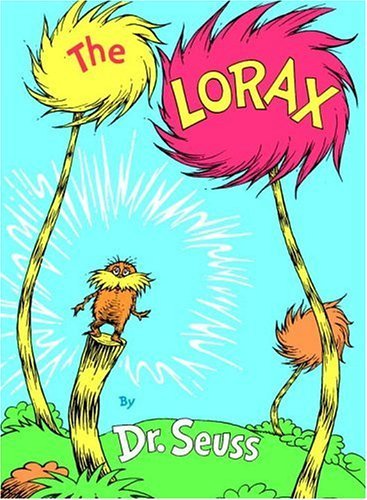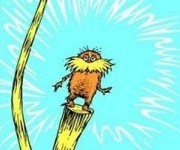 Cross-posted from the Last Word on Nothing.
Cross-posted from the Last Word on Nothing.
I’ve spent a lot of time this past year thinking and writing about extinction, which means I’ve also spent a lot of time drinking thinking about the tragic narrative in environmental journalism.
There’s a lot of genuine tragedy on the environmental beat, and it doesn’t take a partisan to see it. There’s not a whole lot to like about water pollution, or crop failures, or mass extinction. A lot of these stories lend themselves to the Lorax narrative. You know how it goes: The Lorax speaks for the trees, the rest of us keep buying thneeds, and for hope all we get is the Once-ler’s last seed. Though the new Lorax movie might try to fake a sunny face, the story is a tragedy.
But the best environmental journalism uses all the tools of the storytelling trade. With Christopher Booker’s Seven Basic Plots as a field guide, I’ve been searching for examples of environmental journalism with other-than-tragic narratives — archetypal frameworks that still fit the facts, but startle us out of our mournful stupor. I’ve found some good ones, and I’d love to hear about more.
The Overcoming the Monster narrative often shows up in invasive-species stories. For one recent and hilarious example, check out this story from Esquire about Argentine ants. (“They’re not in your underwear by accident. They’re nation-building.”) For a different kind of struggle against a very different kind of monster, listen to “Just Another Fish Story,” a gem of a radio piece about a small Maine town’s attempt to cope with a beached whale.
A wonderful example of the Rags to Riches narrative at work in an environmental story is “Wild Eyes,” a Radiolab piece about big-cat conservationist Alan Rabinowitz and his lifelong connection with animals. (Rabinowitz told the story himself in this performance on the Moth stage.)
The Quest narrative is common in science stories: Scientist sets out on a journey of discovery, faces fearsome obstacles, and ultimately overcomes them (or not). I’ve been on a John McPhee binge lately, so for a Quest example I’ll cite “Atchafalaya,” the colossal New Yorker story that’s also the first chapter of his book The Control of Nature. Here, the earnest but short-sighted hero is the U.S. Army Corps of Engineers, and its quest — to keep the wandering Mississippi on its current course — is surely doomed.
The Voyage and Return narrative is similar to the Quest, except that the hero returns home with the wisdom earned from his or her adventure. For an unusual example, read Edwin Dobb’s personal story about his love of open-water swimming, and what he’s learned about wilderness from his progressively longer, colder swims.
Finding the Comedy narrative in environmental journalism isn’t as tough as it sounds: As psychologist John Fraser points out, environmental stories are full of comedies of errors. (The problem is that most are missing their happy endings.) Earlier this year, I wrote an appreciation of Ian Frazier’s genius story “Hogs Wild,” in which humans and feral hogs play the comedic leads in an essentially tragic tale.
Environmental journalists occasionally get to dig out the Rebirth narrative, though we often find its dark side. I recently edited Brad Tyer’s poignant High Country News story about Opportunity, Mont., a small town destined to be the victim of a much-celebrated Superfund cleanup. The Rebirth story of the cleanup has been told many times; Tyer flipped the archetype and found what lay forgotten underneath.
Last but not least is our old friend Tragedy. I’ll spare you countless possible examples and leave you with one especially memorable story: “Tuna’s End,” an excerpt from Paul Greenberg’s book Four Fish. “Tuna then are both a real thing and a metaphor,” Greenberg writes. “Literally they are one of the last big public supplies of wild fish left in the world. Metaphorically they are the terminus of an idea: that the ocean is an endless resource where new fish can always be found.”
Sometimes, the Lorax is just the fastest way to the truth.




